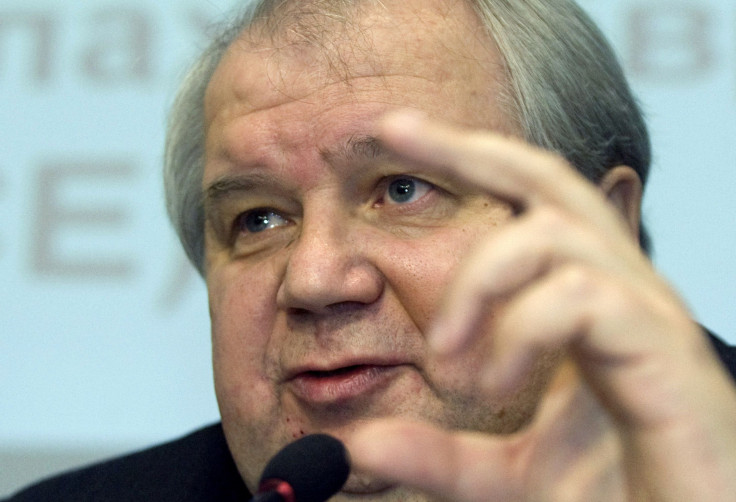Is Russian Ambassador Going Home? Sergey Kislyak's Retirement Party Set For July 11

Russian Ambassador Sergey Kislyak, who has been at the center of the investigation into whether there was collusion between the Trump campaign and Russian officials during the 2016 presidential campaign, reportedly will retire and head home next month.
Kislyak, 66, plans to end his decadelong tenure as Russia’s top diplomat in Washington at a going away party July 11 to be hosted by the U.S.-Russia Business Council at the St. Regis Hotel.
BuzzFeed reported Sunday Kislyak will head home, quashing reports he would be appointed to a senior position at the United Nations in New York.
Read: Obama Should Have Disclosed Russia Investigation Earlier, Schiff Says
Moscow has not confirmed Kislyak’s departure date, BuzzFeed said. He is expected to be replaced by Anatoly Antonov, who is on the European Union’s sanctions list.
Kislyak has been seen as Russia’s spymaster in the United States, a role he denies. He is a central figure in the downfall of former national security adviser Michael Flynn, who admitted he misrepresented his contacts with Russian officials.
The visit of Kislyak and Russian Foreign Minister Sergey Lavrov to the Oval Office earlier this year also touched off a furor when U.S. media were barred from the session, and pictures published by Russian media showed President Donald Trump and the two diplomats yukking it up. During that meeting, Trump reportedly told the Russians he was relieved he had fired FBI Director James Comey because of the pressure created by the investigation into Russian interference with the election.
Read: Is Kushner Russia Story Fake? Republicans Say Maybe, Dems Say Doubtful
Questions also have been raised about contacts between Kislyak and Attorney General Jeff Sessions, who neglected to mention his encounters with Kislyak during his confirmation hearing.
The Washington Post reported presidential son-in-law and top adviser Jared Kushner met with Kislyak in December and suggested setting up a back-channel communication, using Russian embassy equipment to avoid surveillance by U.S. intelligence. Kislyak reportedly relayed the offer to Moscow on a monitored circuit.
The White House denied the story, and Kislyak said Russian policy is not to comment.
Kislyak, a former nuclear physicist, has been a fixture on the Washington diplomatic party circuit and the controversy has not made a dent in that.
Former U.S. Ambassador to Russia Michael McFaul told Newsweek the concern over Kislyak is overheated, saying it’s his job “to make as many contacts as possible as well as advocate for the policies of his government.” He also described Kislyak as “very professional.”
Before becoming ambassador to the United States, Kislyak served as deputy minister of foreign affairs, ambassador to Belgium and head of the Russian mission to NATO. He first joined Russia’s diplomatic service in 1977, working in the Soviet Ministry of Foreign Affairs.
Until recently, Kislyak maintained a low profile with the press but was known for lavish parties at the Russian compound.
Kislyak’s successor also served as deputy minister of foreign affairs and is a former military officer. Antonov was put on the EU sanctions list in response to the Russian military intervention in Ukraine and is considered a hardliner against the West. His appointment was approved by the State Duma’s foreign policy committee May 18.
© Copyright IBTimes 2024. All rights reserved.






















